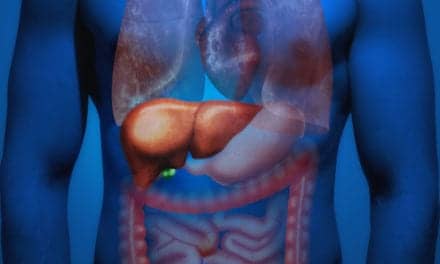A new study that focused on African Americans with hypertension, found that a community-based approach to reporting apolipoprotein L1 genetic test results back to individuals may have beneficial effects to curbing chronic kidney disease.
In 2010, scientists discovered that African Americans who are born with certain variants of the gene called apolipoprotein L1 (APOL1) have a higher-than-average risk for experiencing chronic kidney disease.
The new findings were part of a unique clinical trial—conducted by researchers at the Icahn School of Medicine at Mount Sinai—in which volunteers in the patient community worked on every aspect of the study, including enrolling patients, administering tests, and delivering genetic test results.
Positive Test Results
Preliminary results published in JAMA Network Open showed that the patients reacted very positively to the experience and had lower blood pressure readings while undergoing more kidney function tests. This was especially true for those who received positive genetic test results for the APOL1 high-risk variants, suggesting this approach could be tested in other communities.
“These results suggest we are headed in the right direction. Genetic testing is a particularly sensitive issue for the African American community. African Americans have a higher risk of kidney disease development and progression. While race is a social construct, and this disparity is multifactorial and structural, ancestry has genetic components,” says Girish N. Nadkarni, MD, MPH, the Irene and Dr. Arthur M. Fishberg Professor of Medicine at Icahn Mount Sinai and the lead author of the study. “For many years, researchers have wondered whether reporting APOL1 genetic test results would help improve clinical management. This is the first pragmatic randomized clinical trial to test this out.”
Development of the trial, called the Genetic testing to Understand and Address Renal Disease Disparities (GUARDD) study, began in 2010 with meetings between Mount Sinai researchers and members of the Genomics Stakeholder Board, which included local patients, clinicians, advocates, and health system leaders.
“Community stakeholders play a key role in the GUARDD Study, which includes offering critical input and feedback regarding genetic testing, conditions like chronic kidney disease, and our concerns regarding health disparities.” says Mimsie Robinson, PhD, associate pastor of Bethel Gospel Assembly, New York, N.Y., and a member of the stakeholder board. “Our community is often the last to benefit from advances in science and medicine. We’re hopeful that this study signifies a change in that trend so that people of color will not have to be skeptical of the health care system. That’s why it is so important for us to be involved in every aspect of this trial and others like it in the future.”
Out of those meetings came several innovations, including tailor-made messages; a rapid electronic system for delivering genetic test results to primary care physicians; and the deployment of layperson volunteers from the community, or “coordinators,” to recruit patients, collect data, and report test results.
“Thanks to the tireless work of our Stakeholder Board and other community members we were able to plan a trial that was not only sensitive to the patient’s particular needs but rooted in common-sense solutions,” says Carol R. Horowitz, MD, MPH, Dean for Gender Equity in Science and Medicine at Icahn Mount Sinai and the senior author of the study.
Details of the Trial Study
The trial studied 2,050 adult African Americans who had high blood pressure but had not been diagnosed with chronic kidney disease. Chronic kidney disease is commonly associated with high blood pressure. Moreover, African Americans who have high blood pressure are five times more likely than Whites to experience end-stage renal disease, a more severe form of kidney disease.
Each patient was randomly selected to get tested for the APOL1 variants, which are almost exclusively found in people of sub-Saharan African descent. Patients were randomized to either receive their results immediately or 12 months later. In addition, the coordinators checked each patient’s blood pressure and administered a survey that was designed to assess a patient’s knowledge and attitudes towards health. Follow-up sessions happened three and 12 months afterwards.
Coordinators relayed negative genetic test results by phone and positive results in person. Meanwhile, test results were also automatically sent to the patients’ primary care physicians.
Overall, the results suggested the trial had a positive impact on patients’ lives.
Three months after enrollment, the patients’ average systolic blood pressure levels dropped slightly. This happened regardless of the genetic test results. Nevertheless, patients who tested positive for APOL1 risk variants had a greater drop in blood pressure—from 137 to 131 mmHg—than those who tested negative—134 to 131 mmHg—or those who did not receive a genetic test—133 to 131 mmHg.
Patients also underwent an increased number of kidney-function urine tests 12 months after enrollment. Again, this happened regardless of the genetic test results. However, these results showed that there was only a difference in the rise seen between patients who knew they had APOL1 risk vs. controls.
“These two measurements—the change in blood pressure and increased kidney function tests—act as hallmarks for detecting beneficial lifestyle changes,” says Nadkarni. “The results suggest that the trial clearly influenced those who received positive results and may have had some positive effects on the other patients.”
The next phase of the trial, called GUARDD-US, will be conducted by researchers across the United States. It will enroll more than twice the number of patients as the first phase and include those with existing chronic kidney disease.
This work was supported by the National Institutes of Health (HG007278, TR000067, DK127139, HL155915). A description of the GUARDD trial can be found at clinictrials.gov (NCT02234063).





